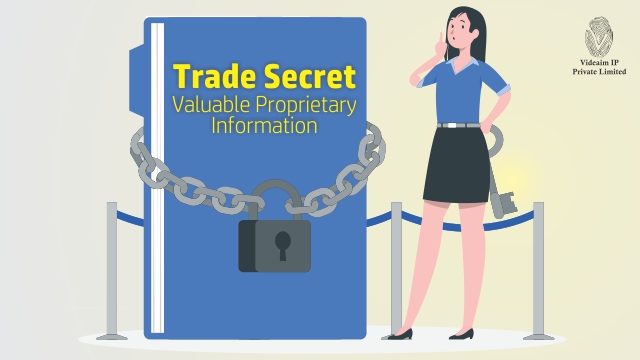
Trade secret is the valuable proprietary information and plays important role in supporting innovation and knowledge sharing in a rapidly changing innovation ecosystem. Generally, businesses understand a trade secret as any information that is not public knowledge and gives a competitive advantage to its holder. This can include formulas, practices, processes, designs, instruments, or a compilation of information.
Characteristics of Trade Secret
Trade secrets has following common characteristics across most of the jurisdiction:
- They are not public information;
- Their secrecy provides an economic benefit to their holder; and
- They actively protect their secrecy.
What qualifies as Trade Secret?
- It must be commercially valuable.
- It must be known to limited group of people.
- The owner must take reasonable steps to keep the information secret.
Difference between Trade secret and Patent protection
Patents are exclusive rights, granted for a limited term, for an invention that is new, involves an inventive step and is capable of industrial application. A patent is an exclusive right or monopoly granted for an invention, limited to a time period of 20 years, and after patent expiry, the disclosed innovation becomes part of the public domain.
Whereas, an undisclosed information known only to a limited group of persons is a Trade secret, and rightful holder of the information must keep it secret. Trade secrets can remain confidential for as long as the information is kept undisclosed.
Practice of Trade Secret in India
India actively participates in the World Trade Organisation (WTO) and signed the Agreement on Trade-Related Aspects of Intellectual Property Rights (TRIPS) in 1994. According to the TRIPS Agreement, all member states must protect Trade Secrets/undisclosed information in accordance with Article 39 of the TRIPS Agreement.
Protection of Trade Secret
Protecting trade secrets involves a combination of legal, technical, and organizational measures. It is important to identify and classify documents based on its sensitivity and the level of protection required.
Legal measures for Trade Secret
- Non-Disclosure Agreements (NDAs): Require employees, contractors, and business partners to sign NDAs to legally bind them to confidentiality.
- Confidentiality Clauses in Contracts: Include confidentiality clauses in employment contracts, vendor agreements, and other relevant contracts.
- Non-Compete Agreements: Where legally permissible, use non-compete agreements to prevent former employees from joining competitors or starting competing businesses.
- Review and Update Agreements: Regularly review and update all legal agreements to ensure they remain effective and enforceable.
- Legal Action: Be prepared to take swift legal action, including seeking injunctions and damages, in the event of a breach.
Technical measures for Trade Secret
- Access Control: Limit access to trade secrets to only those employees who need to know the information to perform their duties.
- Encryption: Use encryption to protect sensitive digital information from unauthorized access.
- Secure Communication: Ensure that all communications involving trade secrets are secure, using encrypted emails, secure messaging apps, and virtual private networks (VPNs).
- Data Loss Prevention (DLP): Implement DLP solutions to monitor, detect, and block unauthorized attempts to access or transfer sensitive information.
Organizational measures for Trade Secret
- Employee Training: Conduct regular training sessions to educate employees about the importance of protecting trade secrets and the specific measures they should take.
- Security Policies: Develop and enforce comprehensive security policies covering the handling, storage, and disposal of sensitive information.
- Physical Security: Implement physical security measures such as restricted access areas, surveillance cameras, and secure storage for physical documents.
- Audit and Monitoring: Regularly audit and monitor compliance with security policies and procedures.
Conclusion
By implementing a comprehensive and multi-faceted approach, organizations can significantly reduce the risk of misappropriation of trade secrets and ensure the continued confidentiality of their valuable proprietary information.
NEED HELP PROTECTING YOUR IP?
The intellectual property (IP) protection attorneys at Videaim IP have extensive experience in helping clients protect their IP, like trade secrets. If you need legal counsel on how to protect your business’s greatest asset, contact our attorneys today.
